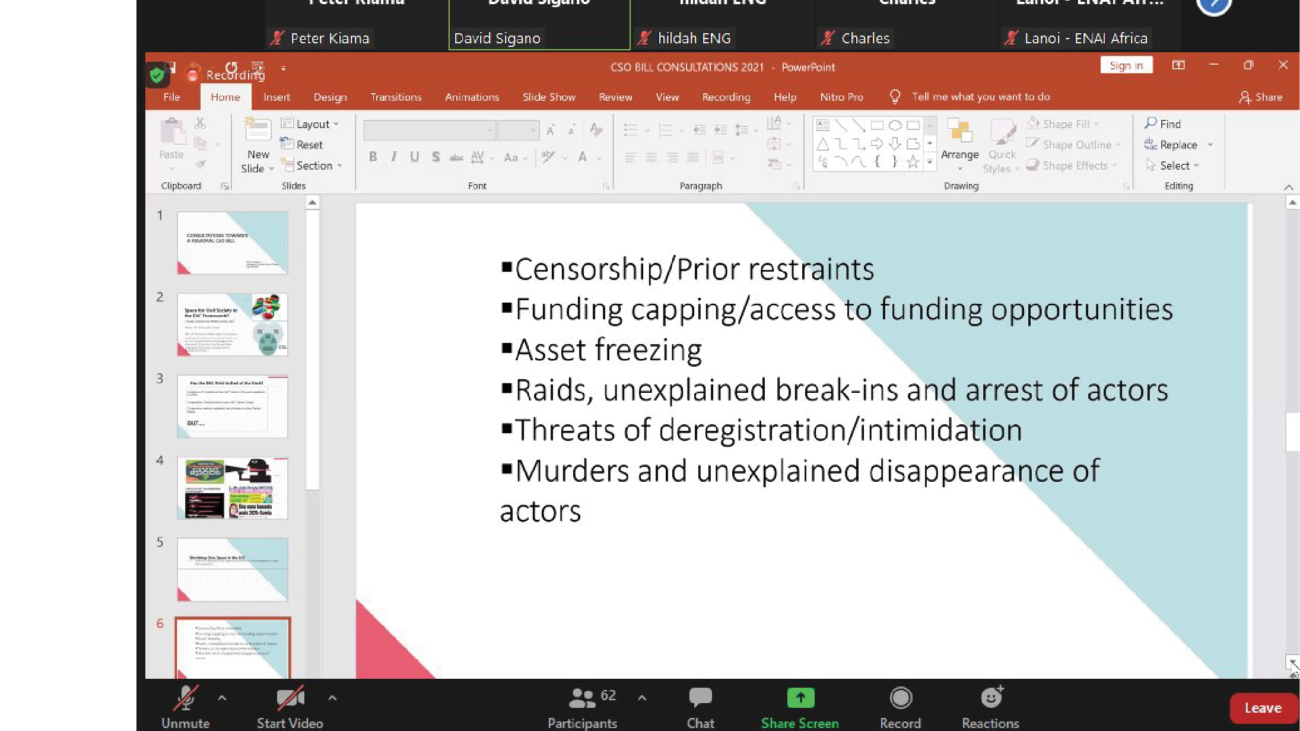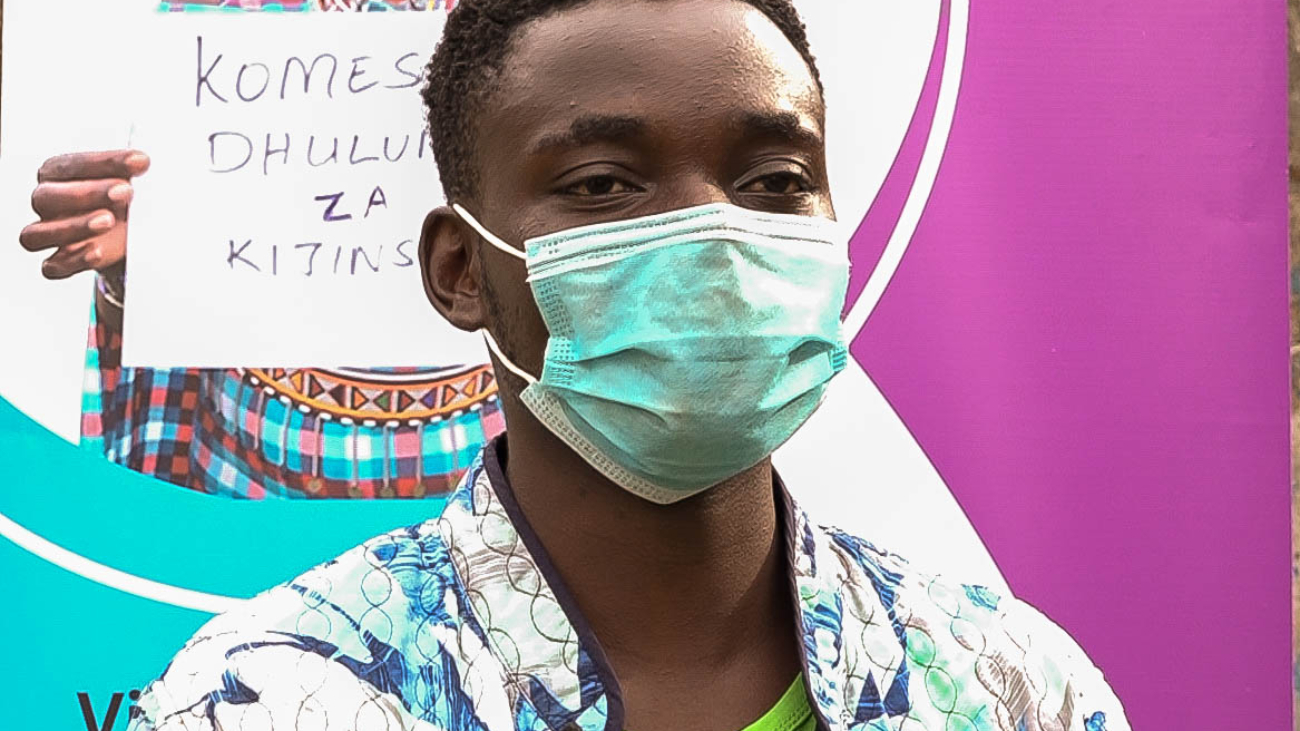Civil Society Organizations (CSOs) in Kenya attended a high breed meeting organized by the East Africa Civil Society Organizations’ Forum (EACSOF) in partnership with Collaborative Centre for Gender and Development (CCGD), to address the declining civic space in the region. The meeting’s main objective was to discuss the Draft East African Legislative Assembly (EALA) CSO Bill that seeks to protect civic space in East African Community partner states. The meeting was attended by 67 members CSOs.
Speaking during the forum, David Sigano from East African Law Society noted that the bill has been facing numerous challenges with acceptance and passing as result of being a private member bill as compared to the executive bills. He urged the members to have an intensive public participation which will give the bill greater authority and bargaining power.
“If we can harmoniously speak with a single voice, then the chances for its success will increase and the bill will be forwarded to EALA for debate and passage,” he said.
Youth have a great role to play in preventing gender -based violence (GBV); by creating awareness through various innovative ways such as the use of social media, peer to peer engagement, edutainment, and artivism. Through these platforms, the youth can cultivate attitudes that do not condone any form of GBV in the society. CCGD is has brought on board 20 youth across four counties- Kwale, Kajiado, Busia, and Mandera.
The convener of CSRG, Suba Churchill, asserted that the bill would indeed be critical advocacy tool noting that Kenya civic space is considered the best in East and Central Africa because South Sudan and Burundi civic space is closed while Ethiopia, Somalia, Tanzania and Uganda civic space is repressed. He urged member states to borrow best practices from open states such as Canada, Uruguay, Germany, Sweden, Norway and the Czech Republic as this will better place the CSOs to compete with the best CSOs around the world.
The forum was attended by The International Centre for Not-for-Profit Law (ICNL), Civil Society Reference Group (CSRG), Independent Medical Legal Unit (IMLU), CUTS International, and Peace Initiative Miritini among other organizations.



